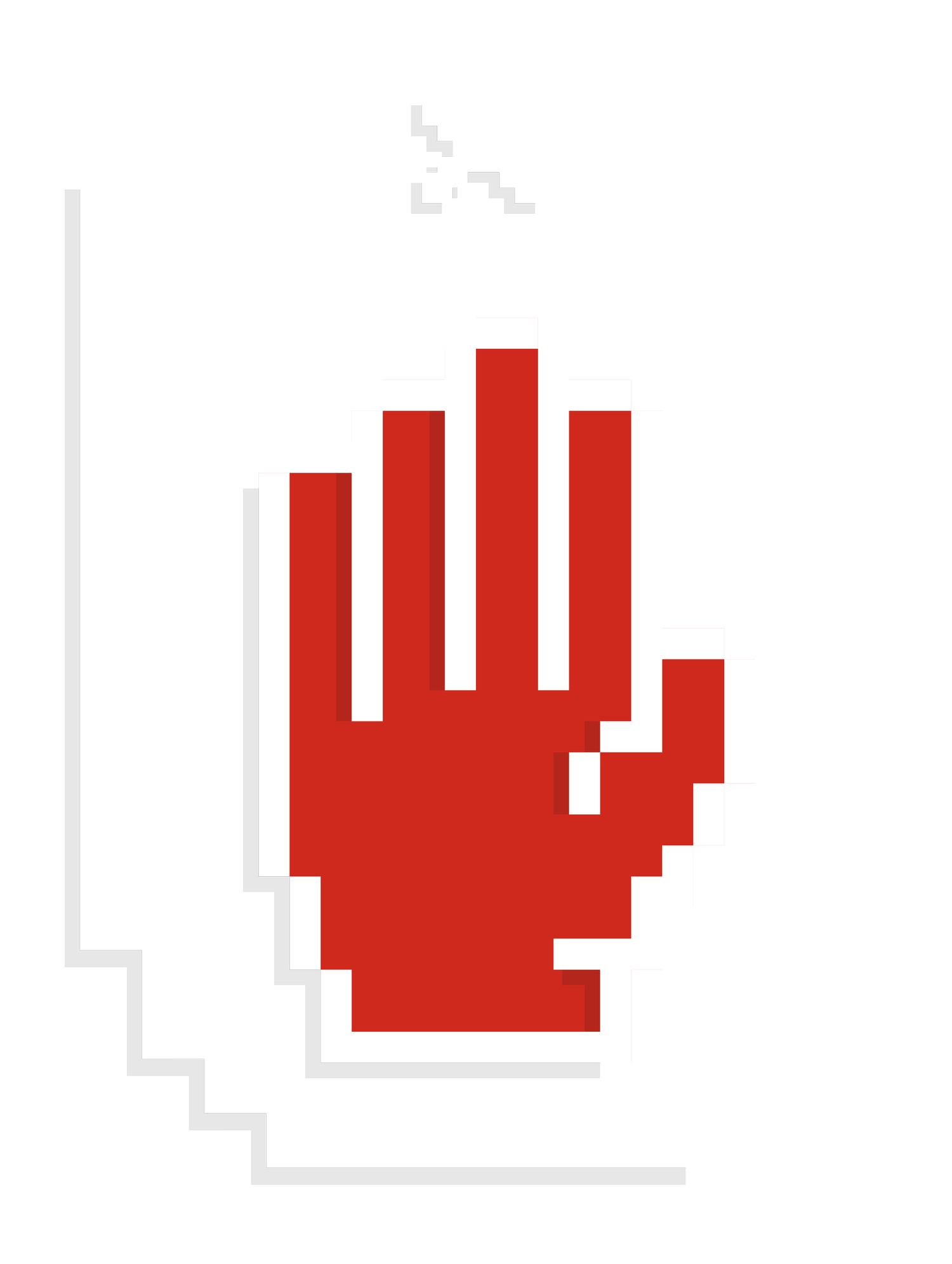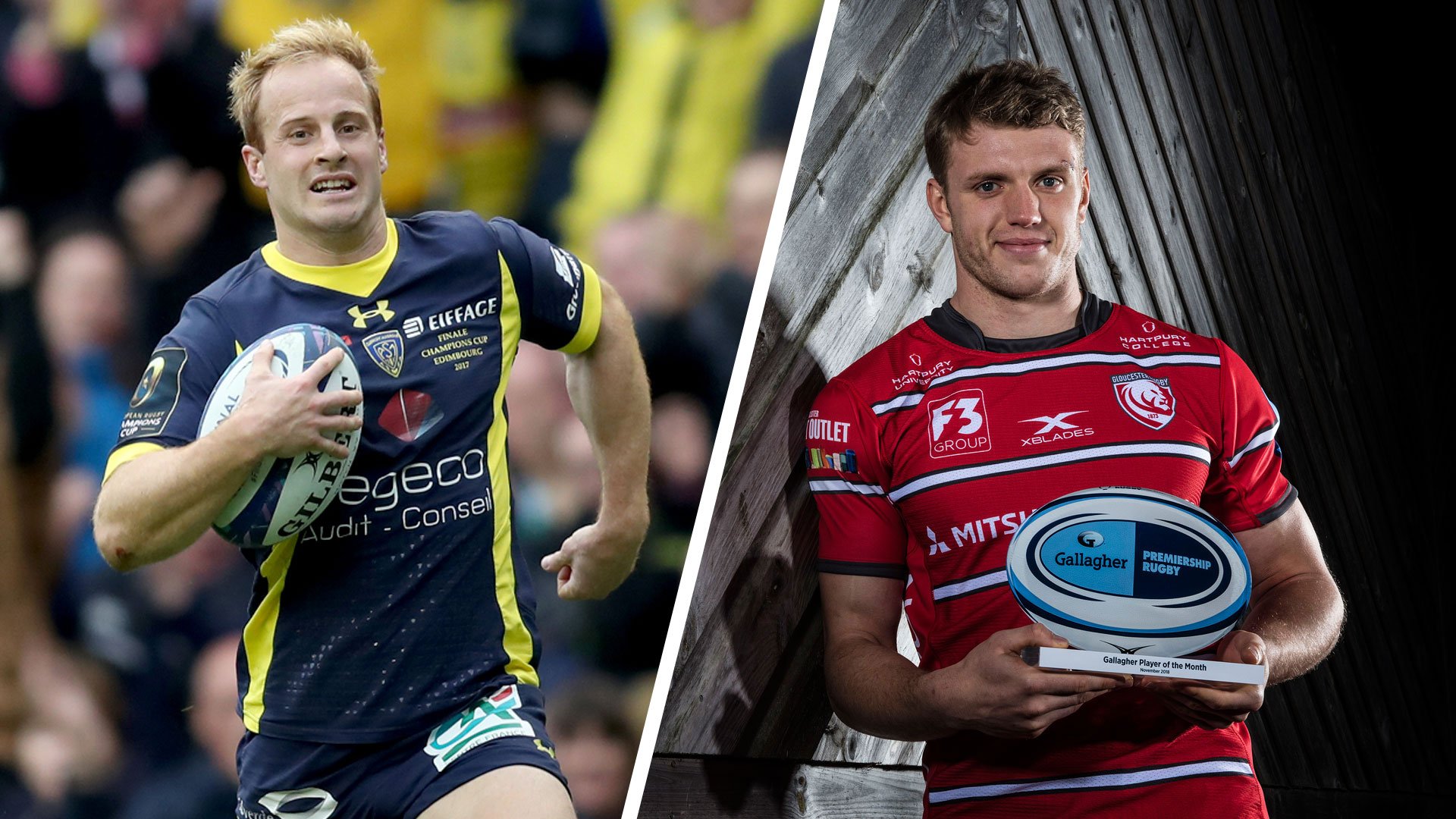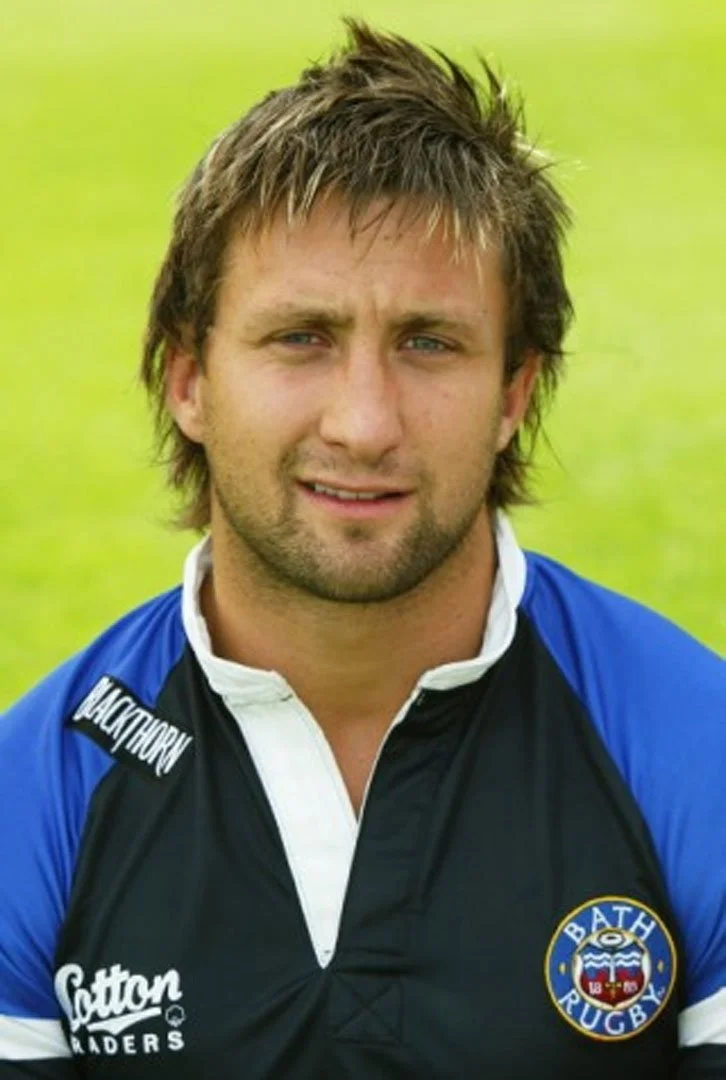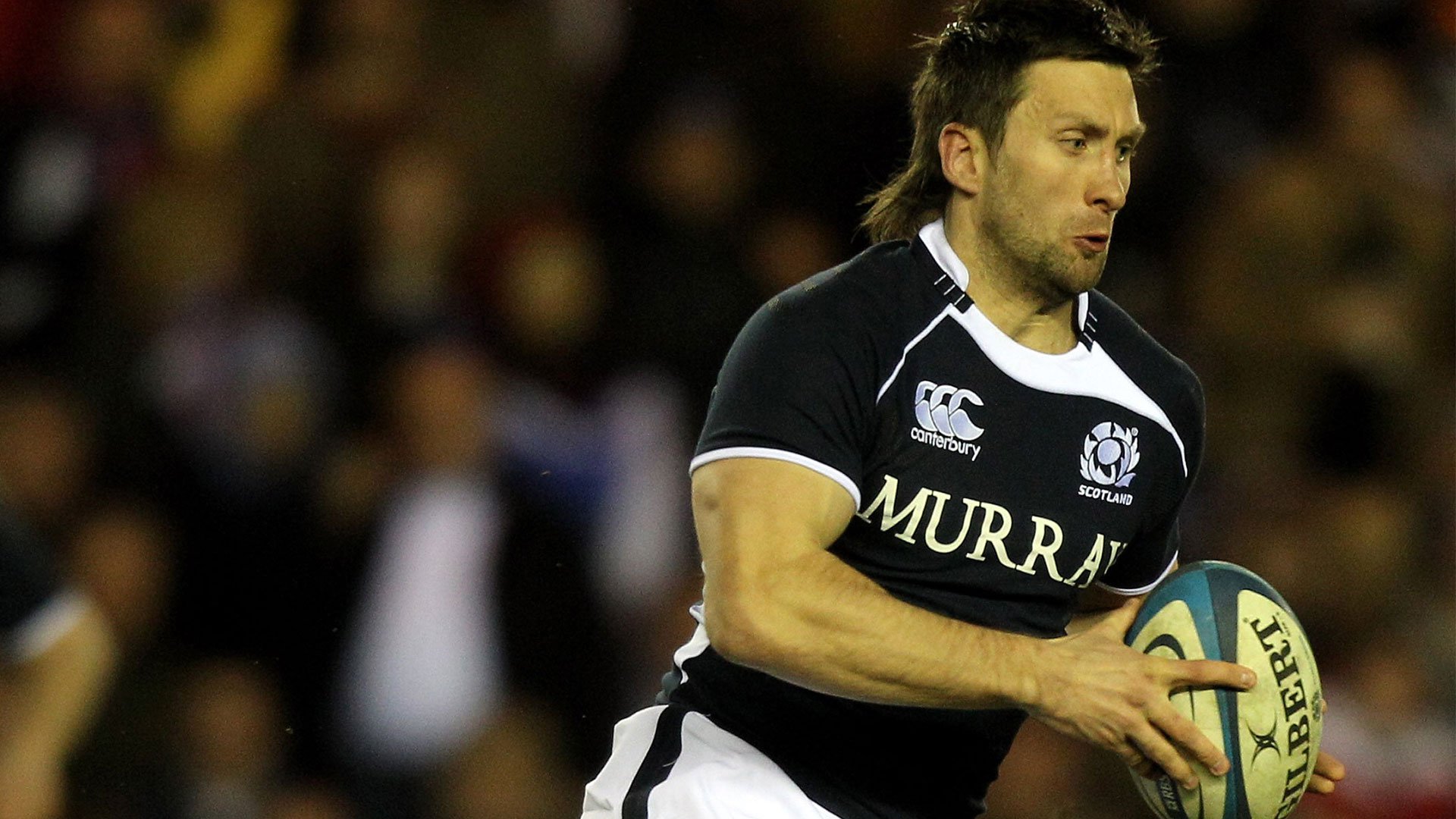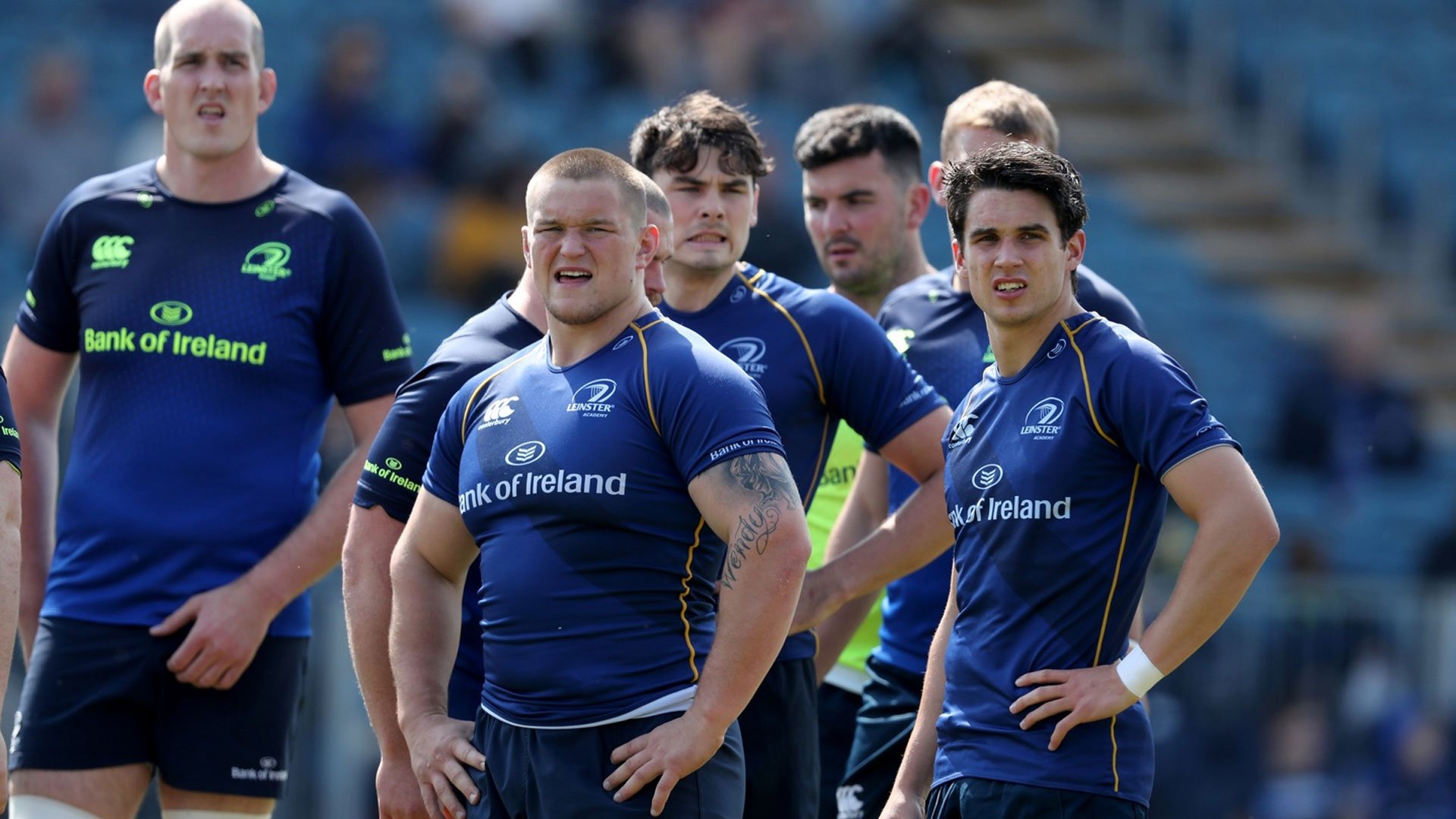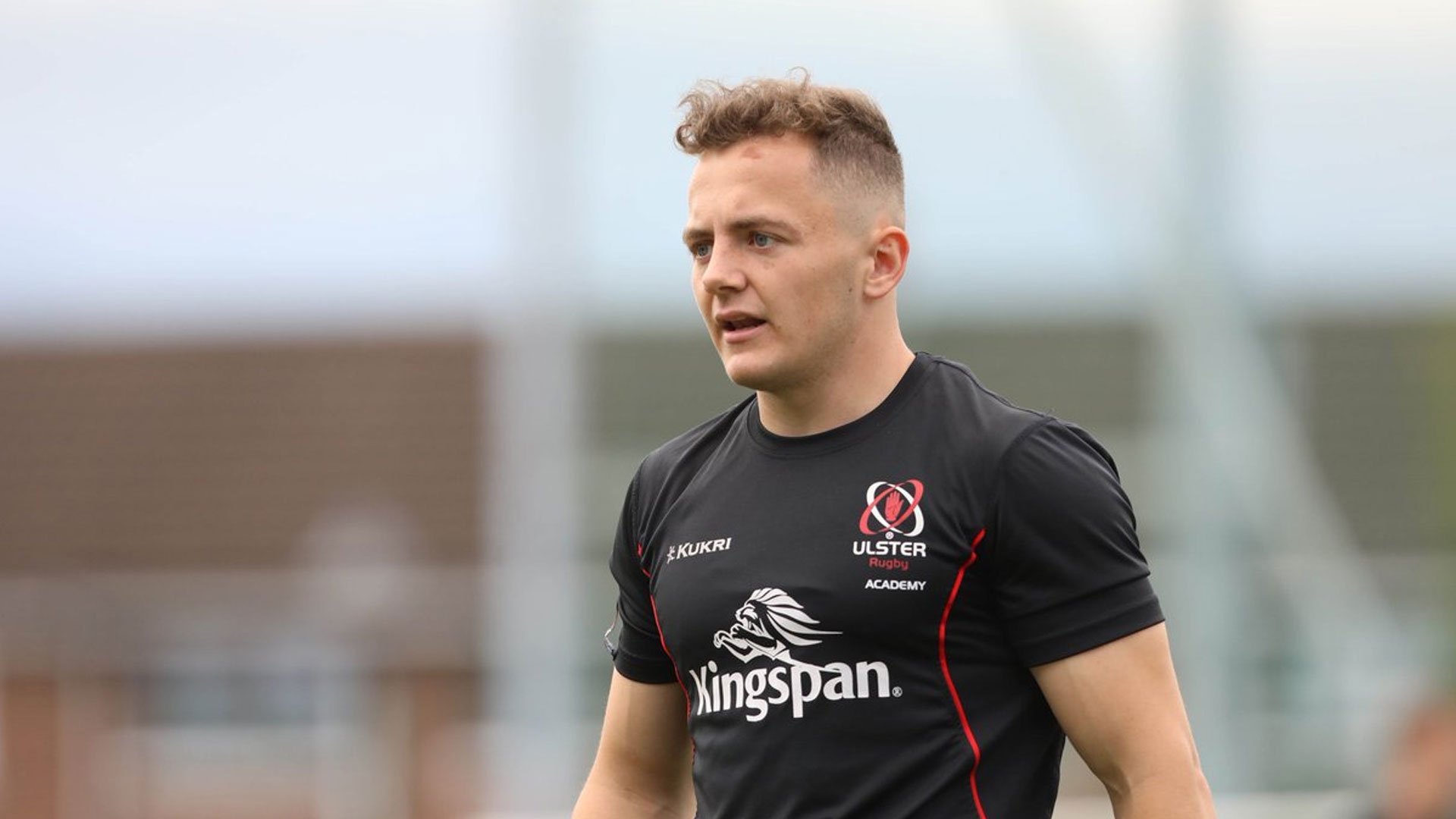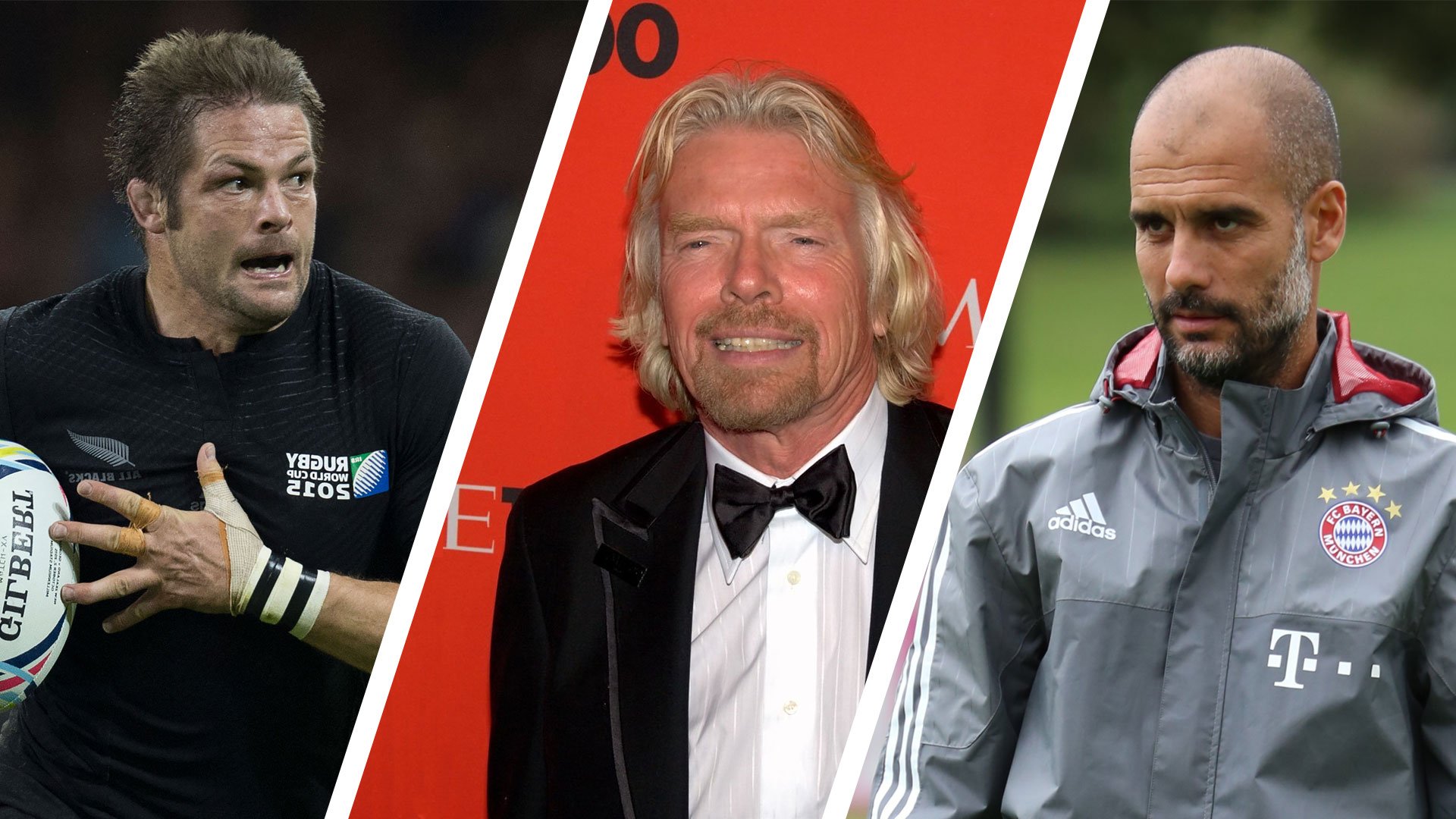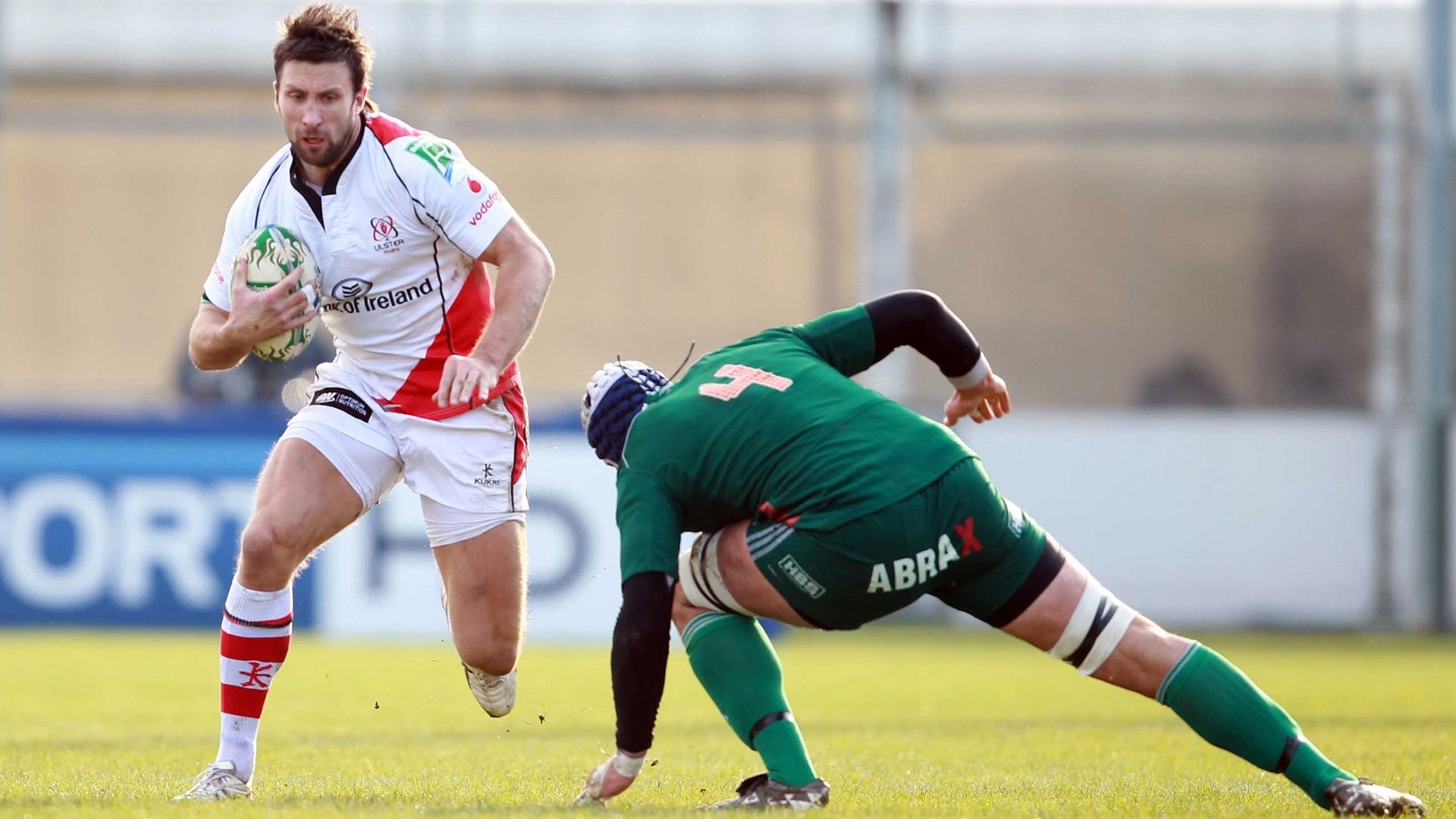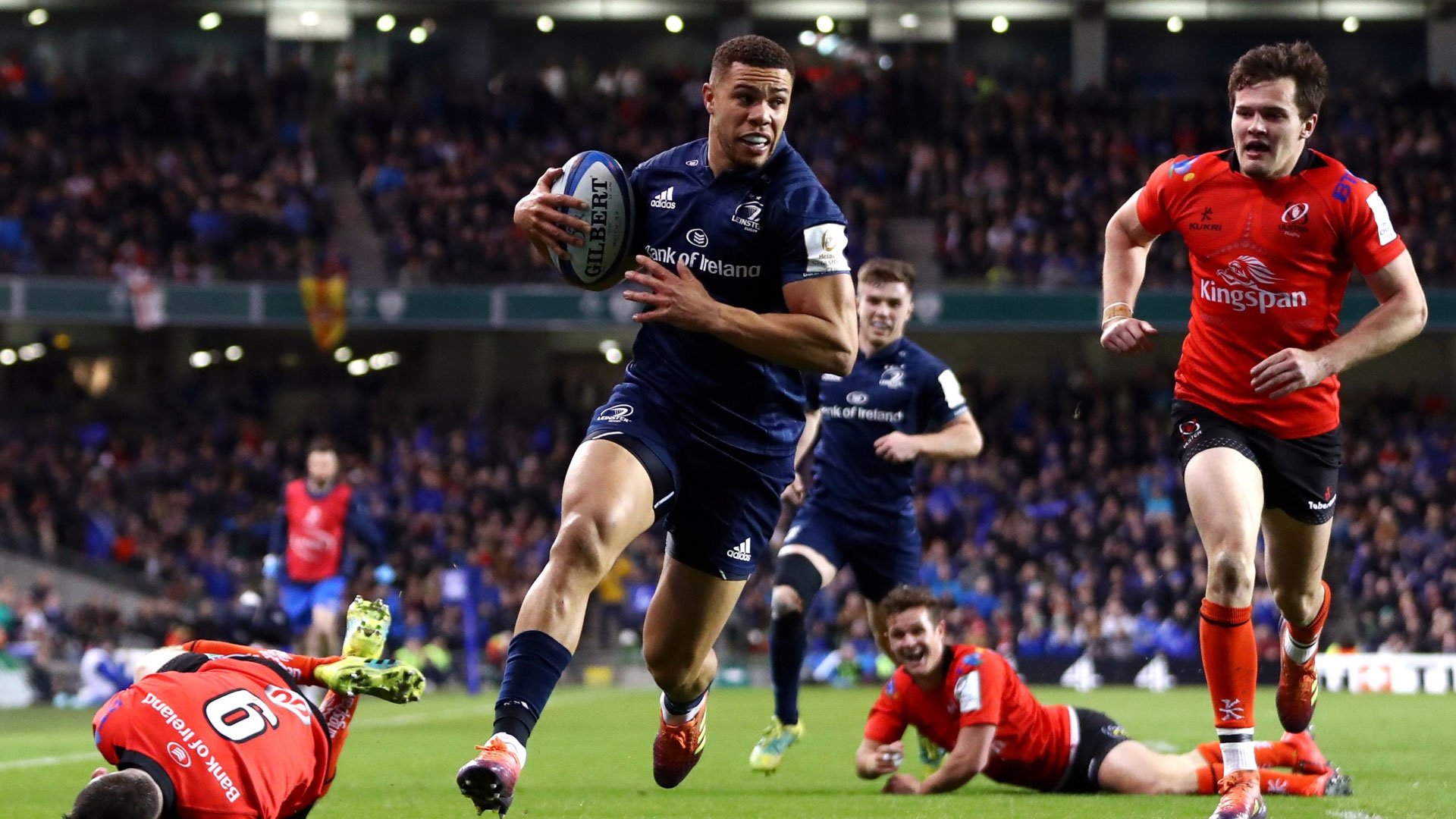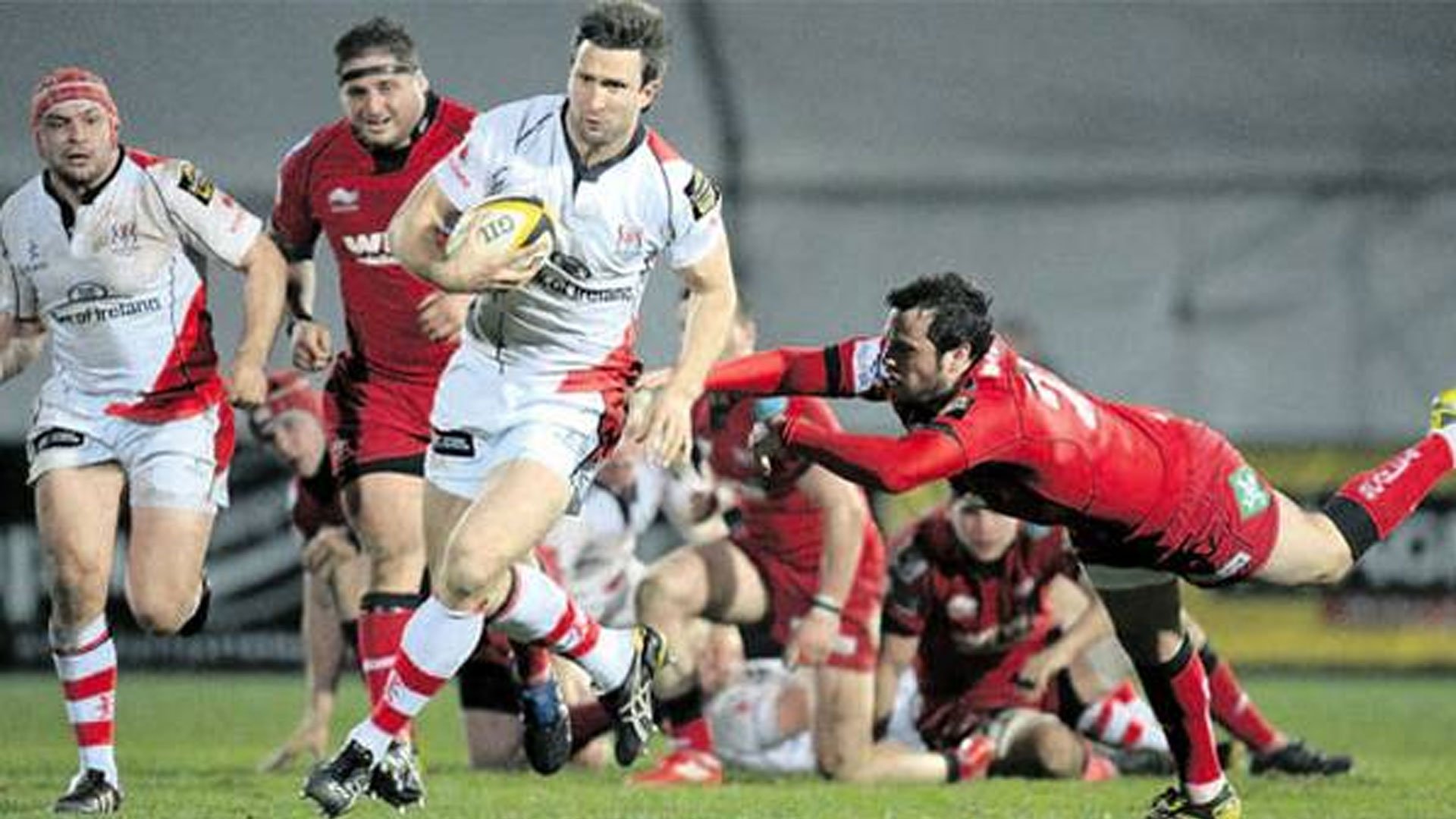Ulster Rugby Lad meets… Simon Danielli
‘I was a ‘blow in’ as you call them here, but I still feel like an Ulsterman.’
Ulster’s flying Scotsman had a career most young rugby players dream of.
Here, he speaks to Ulster Rugby Lad about his journey from studying philosophy and theology at Oxford University, to playing professional rugby for Bath, Borders, Ulster and Scotland.
On his passion for rugby…
Rugby wasn’t my first love as a sport. I loved all sports as a kid, especially football and cricket. However, I went to a rugby playing school that fueled this passion.
There was a great camaraderie around school rugby where anyone who played aspired to play for the first XV. I went to a school called Cheltenham College which was a good rugby playing school. Nick Abendanon (currently of Clermont) went there and, more recently, Ollie Thornley (Gloucester’s young player of the year) has had a great start to his career.
I was always big for my age – I have a suit from when I was 16 that would still fit me! Back in those days I played a bit of full-back and centre but ultimately speed was probably my biggest strength, so it meant eventually switching to the wing. It was only as I got older that I realized this was something that I could and would love to do as a job.
On key influences…
Obviously my parents had a huge influence and I am forever thankful for them for driving me everywhere and standing on the sidelines, no matter the sport, the distance or the weather conditions.
In terms of rugby influences, I had a couple of coaches at school who were brilliant – both as coaches on the pitch and instilling in young men the values of rugby.
In terms of a players I looked up to, it has to be Jonah Lomu. He was the rock-star of rugby that as a player was like nothing anyone had seen before. When you hear the condition he was playing through this only adds to the legend. I also remember playing and loving Jonah Lomu Rugby for the PlayStation as a teenager!
On going professional…
I think from the age of about 17 I knew I wanted to try and play professionally but I never considered it as a viable full-time career option until after university.
Before completing my degree, I had signed for Richmond. The Senior team were really well funded and unfortunately the club went bust in 1999 so I joined Bristol – we had a really good team and were unbeaten for a couple of seasons.
I had a deal with Bristol whereby until Christmas I would play in varsity matches and then I would play the second half of the season for the Bristol academy. It was great to get some exposure to professional rugby while I was at university.
When I left Oxford, I signed for Bath and was there for three really enjoyable seasons. During Matt Williams’ tenure as Scotland coach the rule came in that to play for the national team you had to be playing in Scotland. I had played in the 2003 World Cup and 2004 Six Nations and did not want this to end so made the move up to move to Borders in 2005. I had an amazing time there and felt that we really punched above our weight and it was a great group of guys. Unfortunately, due to funding issues the club was disbanded in 2007, and each player had to find their own path.
I was delighted when Mark McCall got in touch. He explained his vision for Ulster and I already had a fair idea about the history of the club so jumped at the opportunity. I came in 2007 and the rest of my playing days were in Ulster.
On career highlights and lowlights…
I think Rory (Best) spoke about this recently; looking back at a career, specific games and even seasons can merge into one but feelings like doing a lap around the pitch to a chorus of ‘Ulster’ and being on the wing to a deafening ‘Stand up for the Ulster Man’ on a Friday night or during a big European Saturday game will stay with me forever. Ulster really do have amazing fans and I will forever have fond memories of scoring tries in front of the home crowd.
Apart from that, winning two varsity matches with Oxford at Twickenham and going to two World Cups in 2003 and 2011 have to go down as highlights.
In terms of lowlights, it would be injuries I’ve suffered. I got injured quite a lot at unfortunate times. I ultimately retired with lower back issues but also had my fair share of other injuries – I’ve done both shoulders, both knees, cheekbone, cruciate ligament on my left knee. Outside of operations, tearing my groin was one of the worst ones in 2007 just before the World Cup.
No matter how philosophical a player might be about it, it is really frustrating to spend time on the physio bench and not be a part of the team for long periods.
On the pressure of professional rugby…
Often the life of a professional sportsperson is glamourized. Of course, there is a lot of good that goes with it – the camaraderie and getting to do something you love for a living. However, it can be hard as well – the pressure of going through a patch of poor form, not being selected, training on a Tuesday morning when it’s pissing down with rain and you’re knocking lumps out of each other!
It is all worth it but it’s a journey and there are ups and downs along the way. It’s a high-pressure environment. When you come back from a 6-month injury, play a couple of games and get another injury you don’t feel like part of the squad.
When you sign for a new club there’s pressure to do well for your team-mates, the fans and yourself. It’s good to see more awareness about mental health in sport these days and that people are being encouraged to speak more about these things because it’s a high-pressure environment.
On Ulster catching up with Leinster…
…the million-dollar question. The first thing I’d say is that the boys were really unlucky not to beat Leinster in Dublin – that was an amazing performance.
There are a load of factors – cultural, school, academy systems – things I’m probably not qualified to comment on! However, it seems that Leinster churn out a disproportionate number of quality young players. They can field a really strong second team. They just seem to have got into a winning habit down there.
I think a big part of it is about depth and blooding players at a young age, which I do think Ulster have got better at; young players have to be exposed to senior rugby at the appropriate time and must be judged based on more than just one performance.
It comes down to trusting players. Coaches see these guys in training, and they know who the quality players are. Some players nail it on their first opportunity, others need a longer run of games. It’s important to get more than one opportunity – there’s a lot of pressure in that first appearance in the senior team.
It’s also important to not go too long without a game. Players might not be involved in the starting team or only get 20 mins and it’s important they get the opportunity to build form by playing regularly in high quality rugby matches.
On success…
I like to think of success as a journey rather than as a destination. I respect people who have an attitude of ‘what next?’ because they’re constantly improving.
The All Blacks have a mantra of ‘leave the jersey in a better place than you found it’. Richie McCaw springs to mind when I think of someone who typified that mind-set.
In a business context, Richard Branson seems to be always looking for the next challenge.
I’m an Arsenal fan but I have to say Pep Guardiola is someone who also has this mind-set. He wins and you can see him celebrate and really enjoy it, but you can guarantee he is already beginning to plan the next game, the next season. He never seems to rest on his laurels.
On hard work and talent…
Hard work will always be rewarded. It might not be straight away, but ultimately I do believe persistence pays.
There will always be things you look back on and think ‘I could have done more’ or you wish hadn’t happened, but overall, I’m happy with my career.
Sometimes things are out of your hands with injury, but that attitude of hard work applies to whatever field you’re in.
On confidence…
I was definitely a confidence player. I think to an extent everyone is. There were times you went onto the pitch and you knew you were going to have a good game.
Of course, there are times you let doubts creep in and you lose your confidence a bit. The mental side of the game is so important. When you think about mistakes that’s when you’re most likely to make them.
You have to be playing regularly. When young guys come into the team it’s important to make them feel part of it and encouraged to express themselves and play their natural game.
There is a tendency to focus too much on mistakes and I think that, ironically, this leads to more mistakes. It’s a bit like being told not think of an elephant – the first thing you do is think of an elephant! Same with mistakes.
Mistakes will happen and that is where resilience comes in. Resilience is crucial – as you go through your rugby playing career – and through life – you will always have criticism and you will always make mistakes but the ability to bounce back is so important.
On Ulster’s identity…
There is a mantra at Ulster – ‘fight for every inch’. As a fan all you want to see is that your team has given their all – that that have busted themselves for the cause and have a bit of heart and desire.
For example, even though the result in the Quarter final against Leinster in Dublin didn’t go Ulster’s way, you couldn’t fault the performance. You can be proud as a fan regardless of the result – you can leave the stadium happy knowing they gave it their all.
As an Arsenal fan, some of the Arsenal players – you probably know who I’m talking about – their body language looks like they don’t really care.
It’s important for Ulster to continue to ‘fight for every inch’ as I think it is this team culture which helped them exceed expectations this season, for which coaches, players and staff should all take credit.
On hobbies…
I have three kids and my job’s in London, so I travel back and forth quite a bit and don’t get too much free time!
I love being active – going to the gym, cycling, playing football.
Apart from that, for my son’s birthday recently I got ‘him’ one of those VR headsets which is great fun.
On good and bad advice…
Best advice I would give is: in everything you do, give it your best. With the benefit of hindsight, I would say it’s important to relish big occasions – enjoy it in the moment. It’s hard to enjoy big matches at the time – there’s a lot of build-up and nervous excitement, but I would say to any young players to just enjoy every single moment.
Now, in retrospect especially, I can say it was a chapter of my life that I really enjoyed, and I do miss parts of playing professional rugby. If I was to give my younger self advice I’d say ‘live in the moment and in whatever you do, do it to the best of your ability. Most of all, enjoy the ride!’
In terms of bad advice I see being given out in a rugby context, as I say, it’s probably the emphasis that’s put on mistakes. I know the idea is to be aware of mistakes to help eliminate them but I’m not sure it’s a great focus to have. As a player, you’ve got to go out and enjoy yourself and not play with too many constraints.
The other thing worth recognizing is that some games are more important than others. It’s better to be realistic. There’s no point in saying every game is the biggest game of the season – it loses all meaning.
Equally, sometimes to take pressure off, a coach will say about a big game ‘it’s just another game’ and I’d be thinking ‘this is a huge game’. It’s better to recognize certain big occasions for what they are.
Favourite movie…
The Rock – class action movie.
On life outside of rugby…
When you step out of the rugby bubble it’s a difficult transition. You step out into the big wide world and it can be tough. But with challenge comes opportunity…
What have you changed your mind about in the past few years? Why?
That not all people are fundamentally good but nonetheless you should always try to see the best in people
On work…
I am working at Agathos which is a small private equity fund. We invest in businesses and try and turn around their fortunes. It’s very interesting and it’s such a dynamic space to work in – no two days are the same. I really enjoy it.
On the Ulster Rugby connection…
I’ve got a season ticket in the business lounge so me and a few mates head up when we can. Last season I made it to quite a lot of home games and I’ve now subscribed to Premier sports so I can watch the away games. I really enjoy going as a fan. I also stay involved in rugby through C.I. Rugby Club where I coach my son’s p5 team.
I did a bit of radio stuff covering Ulster when I retired – it got me a good seat in the stadium!
Chris Henry had a testimonial recently, so I had a good night’s craic at that – it was good to catch up with a few of my contemporaries. With Darren and Rory leaving this season there are very few still around at Ulster from when I was playing.
I’m a ‘blow in’ as you call them here, but I still feel like I’m an Ulsterman!
On expectations for this season…
Ulster are in a good place. Expectations weren’t that high last season, but they can definitely deem it a success because they made a lot of progress
There are bigger and better things to come over the next few years especially with the number of young guys coming through and guys like Jack McGrath and Sam Carter coming in. I also played with incoming forwards coach Roddy Grant who I think will make a real impact at the club. I’d certainly say the future’s bright!
Thanks Simon!

